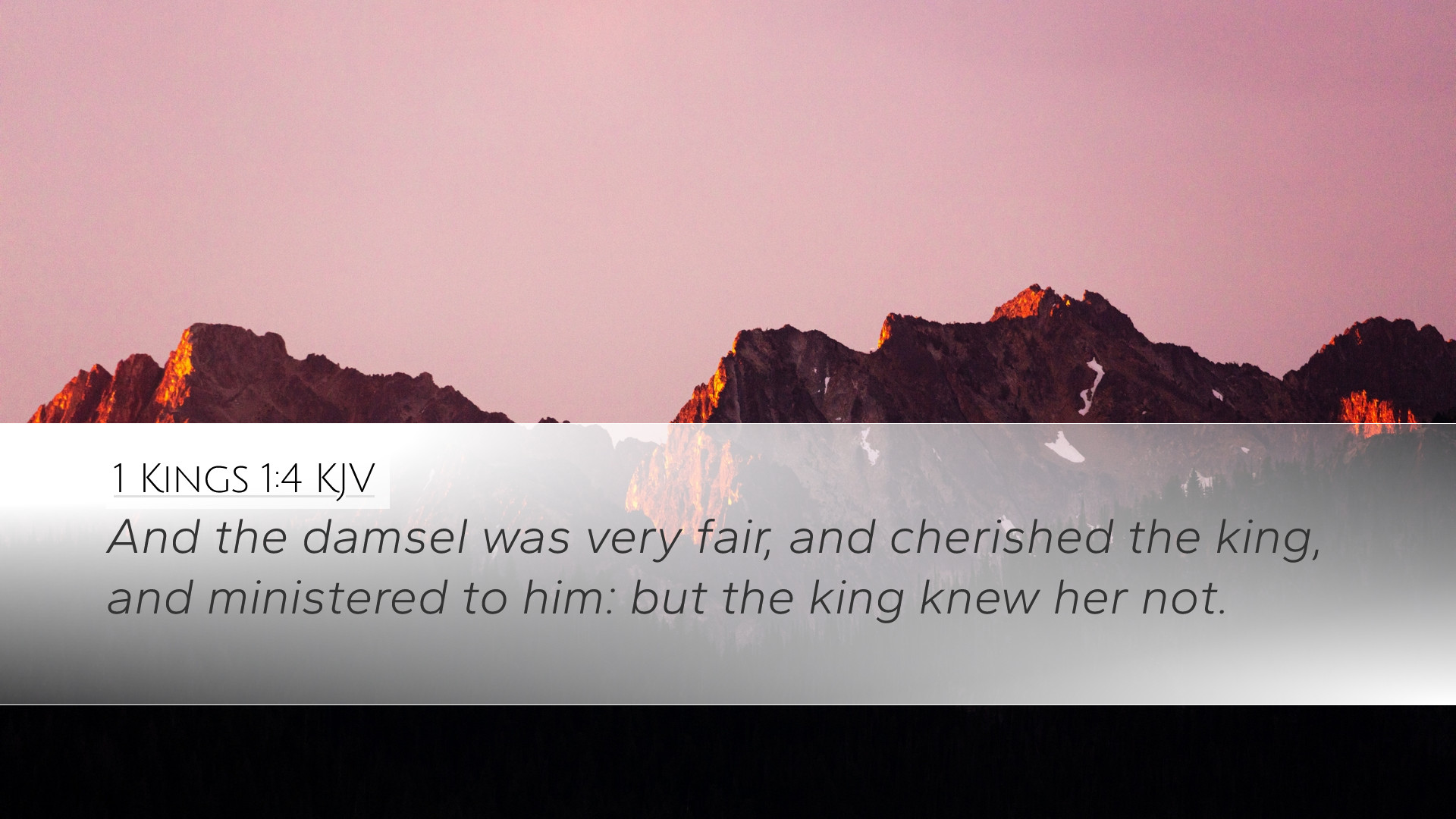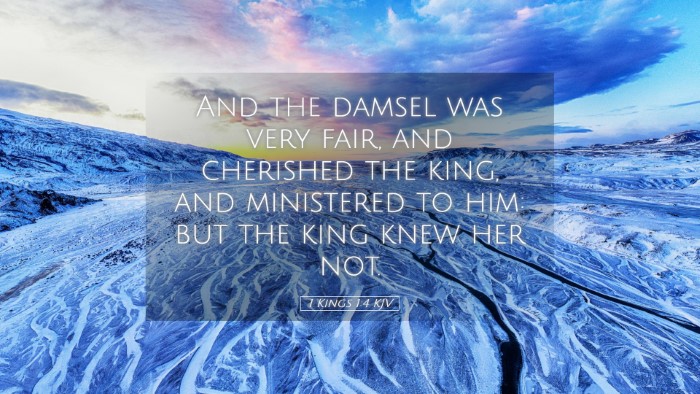Commentary on 1 Kings 1:4
Verse: "And the damsel was very fair, and cherished the king, and ministered to him: but the king knew her not."
Introduction
This verse sets the stage for a critical moment in the narrative of King David’s reign. It introduces a key character, Abishag, who serves as a symbol of both beauty and the complex dynamics within David's house as he nears the end of his life. The commentary will draw from various public domain sources, offering insights into the implications of this passage for understanding leadership, succession, and the unfolding drama of royal politics in ancient Israel.
Contextual Background
1 Kings 1 details the final days of King David as he struggles with issues of health and succession. David's old age and related incapacity invite challenges to his rule, most notably from Adonijah, his son. The introduction of Abishag provides a lens through which to view the intricacies of court life and the tensions involved in royal succession.
Insights from Public Domain Commentaries
Matthew Henry
Matthew Henry highlights Abishag’s beauty and her role in serving the king as a reflection of the essential duties expected of those in proximity to power. Henry suggests that Abishag was not merely a servant but also a confidante to David in his frailty. This relationship is vital as it underscores the emotional and psychological needs of a leader approaching death.
- Beauty and Service: Henry emphasizes that her beauty is noted not only for its aesthetic value but also for its significance in courtly dynamics. Her presence is meant to cheer the king in his elderly state.
- Royal Succession: The commentary also points to how Abishag’s introduction foreshadows the political maneuvering that follows as King David’s sons, especially Adonijah, vie for power.
Albert Barnes
Albert Barnes provides a historical lens through which to understand the practices of ancient monarchy. He points out that it was customary for kings to have companions in their old age, particularly for comfort and assistance, which further situates Abishag’s role within the context of the culture of kingship.
- Political Implications: Barnes draws attention to how Abishag’s role as a caretaker may have political ramifications, reflecting notions of legitimacy and succession as the king’s life diminishes.
- The Ignorance of the King: The phrase "but the king knew her not," indicates that there was no sexual relationship, suggesting that Abishag's role was purely functional and ceremonial, emphasizing purity and fidelity even in old age.
Adam Clarke
Adam Clarke offers a thorough analysis of the text, questioning the implications of David's choice in companions and how it reflects upon his leadership choices. Clarke discusses the spiritual implications of the passage, stressing that the king's condition required the need for a companion who could provide both care and attention.
- Symbol of Decline: Clarke views Abishag as a symbol of David's fading power, noting how even in his old age, the king's physical needs are met, yet he remains politically vulnerable.
- Underlining Themes: The commentary addresses themes of vulnerability and reliance, and how these concepts play into the overall narrative of kingship in Israel.
Theological Reflections
This passage raises significant theological questions regarding leadership, human frailty, and the nature of divine providence in governance. For pastors and theologians, it encourages reflection on the multidimensionality of leadership, especially in contexts of decline.
- Leadership and Vulnerability: This verse illustrates the vulnerability inherent in leadership; leaders can face isolation and physical decline, reminding us of our human limitations.
- God’s Sovereignty: As David's life nears its end, it invites consideration of how God orchestrates historical events through human choices, often in ways that defy human understanding.
Conclusion
1 Kings 1:4 serves as a poignant reminder of the complexities involved in leadership and the significance of support systems as one navigates the twilight of life. The insights from public domain commentaries reveal the depth of theological and historical considerations surrounding this passage. As we reflect on the roles that beauty, service, and the human condition play in the life of a leader, we are reminded of the need for wisdom and discernment in both personal and communal contexts.


